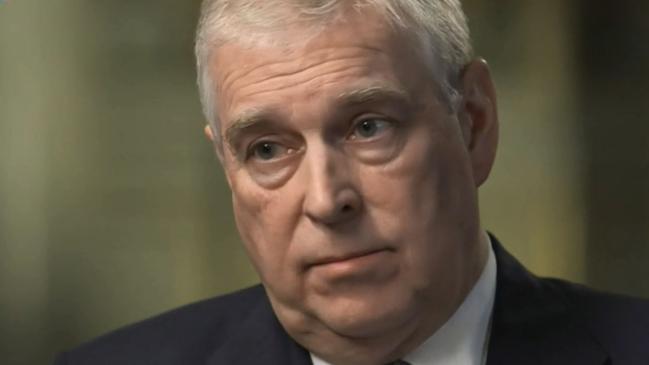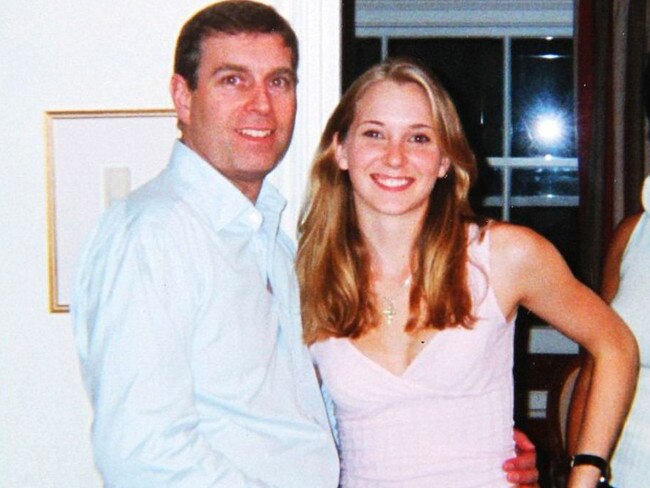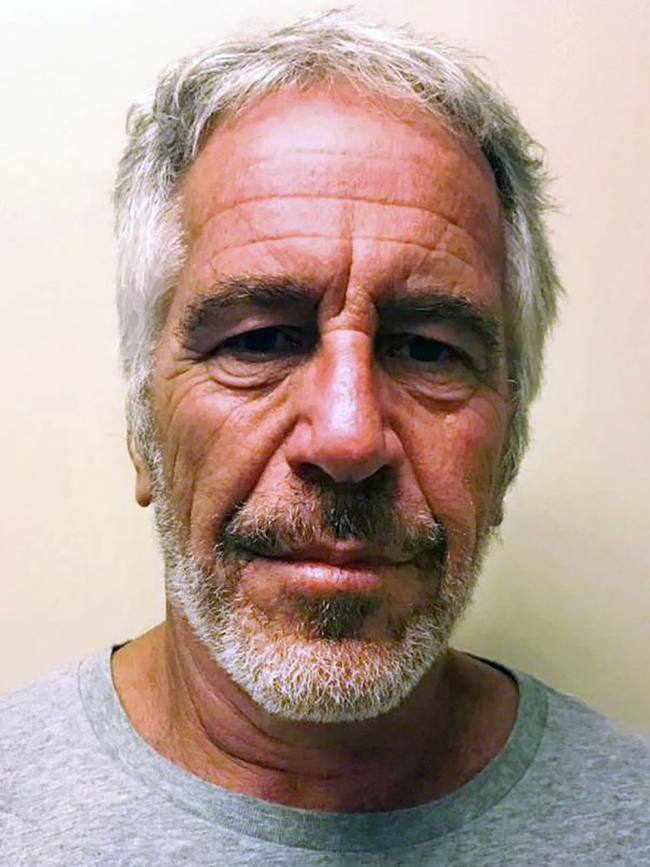Andrew isolated after Queen casts her Black Prince adrift
Being a member of the royal family will offer Prince Andrew no protection from authorities.

Heavy is the head that wears the crown. This week the Queen was forced to choose between her favourite child, Andrew, and her family. She chose her family. The court of public opinion demanded it. And so did duty.
The Duke of York is now a royal without a role and maybe without any means (any private salary will be at Her Majesty’s discretion). Certainly, he is a royal with little left to lose.
The royal sacking, conducted after a three-way confab between the 93-year-old Queen, her 71-year-old son and heir, Prince Charles, who is in New Zealand, and his 37-year-old son and heir, Prince William, was a decisive attempt to stem the reputational damage inflicted on the royal family by its “Playboy Prince”.
While the humiliation for the 59-year-old duke is complete, his fall from grace may be far from over. Constitutional experts tell Inquirer Prince Andrew has no special protections as the son of the Queen, no diplomatic immunity arising from his role as a UK trade envoy and is as subject to the law as an ordinary British citizen.
The furore over the Duke of York’s friendship with the now-dead billionaire sex offender Jeffrey Epstein is so toxic and personally dangerous to Andrew that palace aides are working out how to erect various legal barricades to try to protect the institution of the monarchy.
It is not Andrew they fear for — indeed his haughty reputation attracts much derision and annoyance within the royal court — but the ongoing mystique and magic of the royal family. This is, says one courtier, a crisis.
A royal source tells Inquirer Andrew will “no doubt’’ benefit from legal roadblocks and the best advice money can buy, but they are braced for further revelations if Andrew is forced to surrender diaries, notes, calendars and emails to US investigators.
“We don’t know, but of course there is fear he has a lot to hide. Being royal, even something innocuous could look bad,” the source says.
Ever since Andrew spoke to BBC Newsnight last Saturday night, lawyers for Epstein’s victims have redoubled their efforts to get him to make a sworn testimony. There are two US investigations that could affect Andrew. The FBI and the US Department of Justice’s Office of the Inspector-General are probing Epstein’s conspiracy to traffic underage girls. It is unclear if Andrew or other high-profile identities are targets of the investigations as the cases are sealed.
Notwithstanding these investigations, Epstein’s victims are pursuing legal action against Epstein’s $US570m ($103bn) estate and they want Andrew to testify under oath.
Sigrid McCawley from the Boise Schiller legal team, who is acting for Australian victim Virginia Roberts Giuffre, says the firm and its clients welcome Wednesday’s development in which Andrew stepped aside from his royal duties “for the foreseeable future’’ as a first step towards taking responsibility for his actions.

It was a 17-year-old Roberts Giuffe who Andrew was famously photographed with in 2001 — his arm around her waist — in the London mews flat of Epstein’s former personal assistant and girlfriend Ghislaine Maxwell, daughter of disgraced British publishing magnate Robert Maxwell.
In the BBC program, Andrew claimed he couldn’t recall anything about Roberts Giuffre or the photograph and that on that day he had taken daughter Princess Beatrice to a pizza restaurant.
Another lawyer who represents victims, Lisa Bloom, demanded Andrew should not only give information but compel his staff to do so as well. She tweeted: “He (Andrew) and his staff must co-operate with all investigations, show up for civil depositions and trials, and produce all documents.’’
Ominously for the royals, she says: “We are just getting started.”
Roberts Giuffre, now 35, says she was forced to have sex with the world’s billionaires and politicians, and that this included Andrew on three occasions.
For years Epstein, a convicted sex offender, entertained the rich and famous on his collection of properties including the 30ha private island in the Caribbean Sea, Little Saint James, a 400ha New Mexico ranch, a 40-room Manhattan townhouse on the Upper East Side, a house in Palm Beach, Florida, and an apartment in the 16th arrondissement in Paris.
Most of these properties had decorations of a sexual nature including massage rooms, sex toys and tawdry pictures, and most had secret cameras capturing every potential blackmail opportunity.

That the Queen’s son, eighth in line to the throne, could face the full force of US judicial scrutiny because of his friendship with Epstein, who died in custody on August 10, taking many dark secrets with him, has come as a surprise to the British public, which has become inured in recent years to Middle Eastern playboys ignoring local rules under the cover of diplomatic protection.
Yet it appears the once-popular royal son’s official title as UK Special Representative for International Trade and Investment, a role he held for a decade while swanning around the world on taxpayer-funded first-class travel, will offer no shield.
Andrew stood down from that position in 2011 amid a public outcry when pictures emerged of him walking several months earlier with Epstein in New York’s Central Park.
At the time Andrew’s judgment was under attack for holding meetings with Libyan leader Colonel Muammar Gaddafi’s son Saif and entertaining the son-in-law of Tunisia’s ousted president Zine El Abidine Ben Ali at Buckingham Palace. Andrew was a “thickhead’’, said one man who had met him on several occasions. Well connected or not, royal or not, ill judged or not, none of that will protect him from scrutiny, the country’s leading experts say.
Bob Morris, a constitutional law professor at University College London, has advised the British government on the monarchy and the constitution, including the 2011 changes to the rules for royal succession, which ended male preference primogeniture. He tells Inquirer: “Prince Andrew has no special status and he doesn’t have diplomatic immunity, as he doesn’t qualify under the convention. He is a normal person, there is no immunity.’’
Morris adds that, even if legal events develop unfavourably for Andrew, there will not be any constitutional impact because someone who is eighth in line to the throne has no constitutional role.
Buckingham Palace has confirmed Andrew will step aside from royal duties but as a member of the royal family he will continue to attend family functions such as the annual Christmas Day gathering at Sandringham and keep his key patron role at Pitch@Palace — even though sponsors and universities are deserting that entrepreneurial concept.
There has been some suggestion Andrew also will continue in his role as a councillor of state — one of five people who can legally fulfil the monarch’s duties when she is overseas or ill.
However, Morris says Andrew doesn’t automatically qualify as a councillor as those roles are restricted to Prince Philip and the next four in line. The role of state councillor is only temporary and very rarely implemented because the Queen, now 93, has ruled out further overseas travel. Intriguingly, a councillor of state is empowered to do all the business in the Queen’s absence except change the law of succession. No chance, then, that Andrew can bump himself up the chain.
Presumably the Queen will continue to provide an allowance to Andrew, even if he is sidelined, as her payments to the members of the family for their public works are for her judgment only. Previously, Andrew qualified for £250,000 ($476,000) a year.
In the past, Prince Charles has spoken about streamlining the family when he becomes king, which has annoyed Andrew who believes his two daughters, as “blood princesses’’, should continue to be funded.
So it is intriguing, then, that Charles and also Andrew’s nephew, Prince William, were the ones to step up and make this crucial decision about Andrew’s future.
Andrew would have been most reluctant to step aside from royal duties as there are no modern precedents for such a forced retirement. No one wants to be the first.
But the Queen, the heir and the heir’s heir decided in a series of conversations that spanned Buckingham Palace, Windsor Castle, the Royal Lodge and New Zealand that the monarchy had to be protected. With the family in agreement, the Queen sacked her second son, allowing him the fig leaf of saying it was his decision.
At the end of the day, even princes must bend the knee.




To join the conversation, please log in. Don't have an account? Register
Join the conversation, you are commenting as Logout